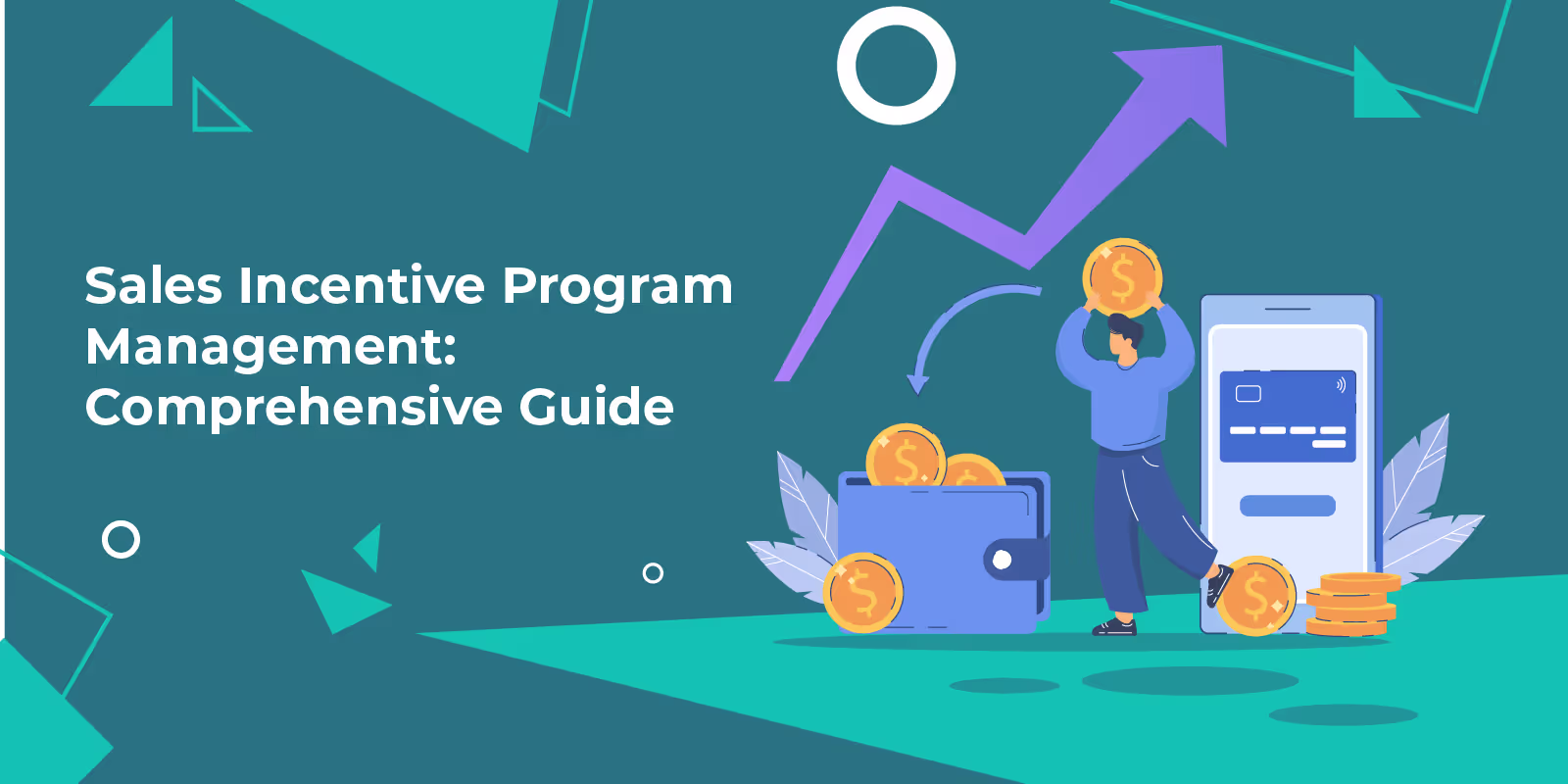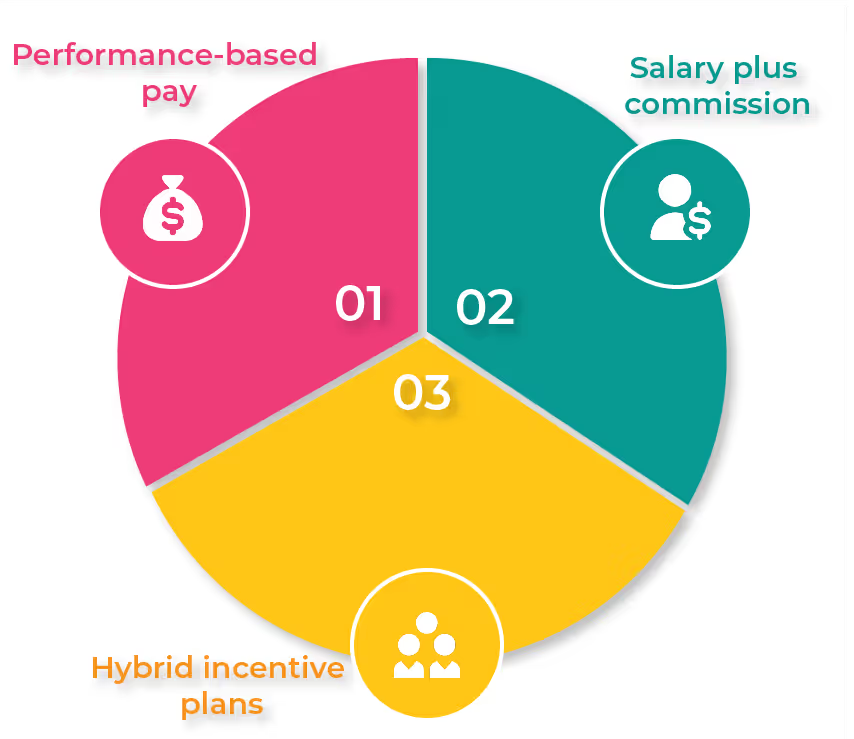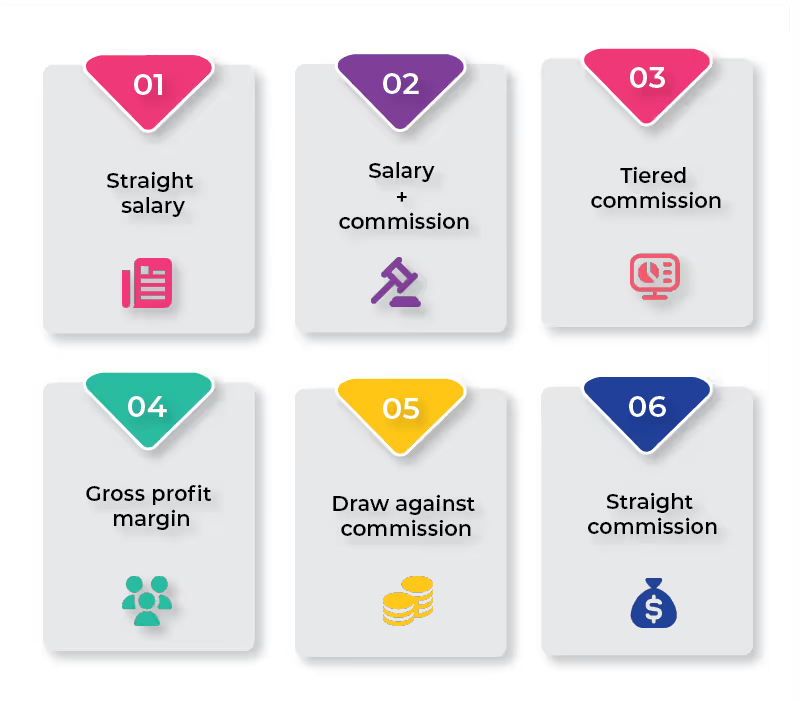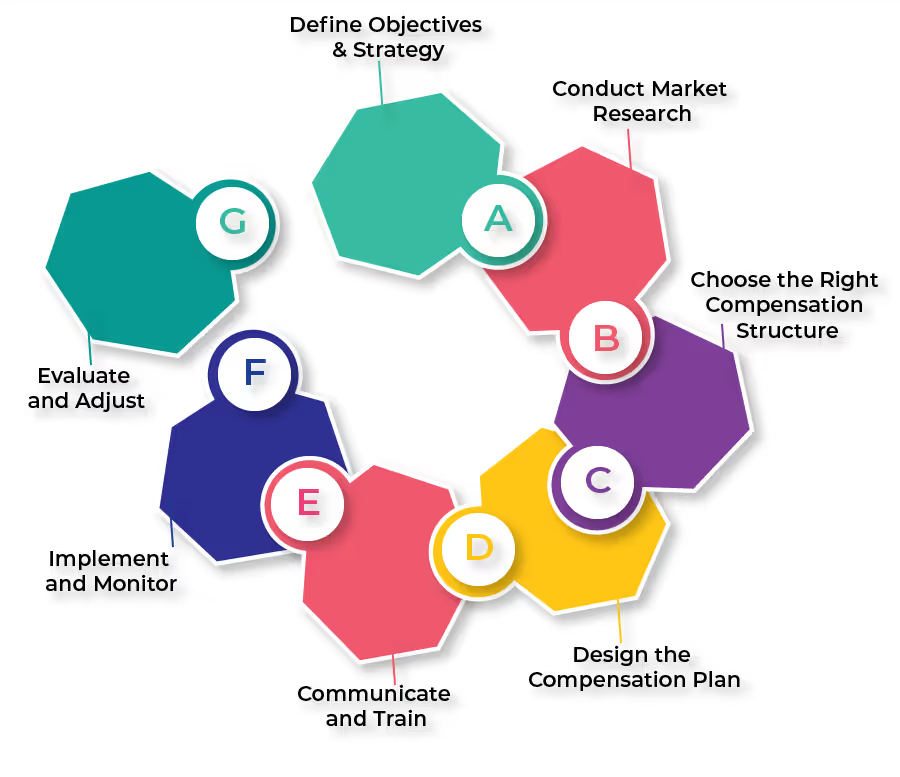
Blog
Sales Incentive Program Management: Comprehensive Guide
June 29, 2024


Key Insights
Are you that sales manager racking your head to motivate your salesforce?
You wish if only they performed a little more well, they met their targets more promptly, and they brought in bigger deal sizes. If only they did!
Here is the thing, these expectations are vile if you haven't built a solid incentive plan. It is your secret sauce to achieve these objectives and more.
As a sales manager, your job doesn't end with just designing an effective sales incentive program. You also need to focus on the implementation and overseeing of sales compensation.
In short, you must take charge of its management.
So here is a blog for all sales managers who have a hard time in sales incentive program management.
We walk you through understanding sales incentive plan management, the top three compensation models, and various types of compensation. We will also familiarize you with key sales terms, and assist in building an effective sales compensation plan.
For all this and more information, scroll down for more.
What is sales incentive program management?
Effective sales incentive programs need effective management.
This involves creating a streamlined process of designing suitable incentive programs, implementing efficient operations for running, and overseeing that the program is giving desired results.
- Your suitable incentives include bonuses, commissions, recognition programs, etc.
- Your efficient operations include providing incentives, checking employee satisfaction, and updating according to changes and requirements.
- Your desired results include motivating employees, enhancing employee performance, and achieving specific business goals.
When you can strike a balance between designing, implementing, and overseeing the process, then it means you have achieved efficient sales incentive program management.
The Top Three Sales Compensation Methods
Businesses have a pool of sales compensation methods to choose from. But some incentive methods have proved successful and preferred among employees.
Here are the top three sales compensation methods that are largely used for sales motivation and performance.

Performance-Based Pay
Performance-based pay incentivizes sales reps for their sales performance, achievements, and results.
These rewards can be in the form of commissions, bonuses, etc. Commissions are given as a percentage of the deal they close. While bonuses are rewards for achieving specific short-term goals or exceeding performance expectations.
Salary Plus Commission
Salary plus commission is a safe option for sales reps. The pay structure consists of two parts- a fixed amount and a variable pay.
The sales rep will receive the fixes or base salary irrespective of their month's performance or closing. While the variable pay is the additional amount they will receive as a reward for their sales achievements.
Hybrid Incentive Plans
Hybrid incentive plans offer a mix of various compensation elements. Each sales rep has a distinct incentive plan that caters to their role, responsibility, needs, preferences, and requirements.
Hybrid sales incentive examples make use of monetary and non-monetary rewards. Depending on the employee they will receive rewards ranging from bonuses, commissions, and stocks to public recognition, paid time off, or cash vouchers.
The decision of which compensation method suits you is a subjective one.
Eventually, all these incentive programs aim to motivate employees, enhance performance, create a positive work culture, provide financial security, and achieve business goals.
Types of sales compensation plans
An employee is as good as their compensation plan. There is no denying that a lot depends on how much you compensate your workforce.
As a business, you must choose a sales compensation plan that can drive your salesforce towards growth and success.
So here are a few types of sales compensation plans that will help you achieve your desired results:

Straight Salary
Straight salary only consists of fixed pay that the sales rep will receive at the end of each month.
Though it gives financial stability, the lack of a variable incentive can be a lack of motivation for their sales performance.
Salary + Commission
Striking a balance between a fixed salary and variable pay is always the right mix. While the base salary provides financial stability, the variable pay works as the motivator to drive motivation and performance.
Tiered Commission
Tiered commissions encourage sales reps to better themselves after each milestone.
In this commission plan, the commission rate increases as the sales reps achieve higher sales targets.
Gross Profit Margin
Here commissions are calculated as a percentage of the profit made from the sale. This encourages sales reps to focus and close on high-value deals.
Draw Against Commission
Sales reps can ask for advance payment of their commission even before earning them. This helps them to draw money when in times of shortage.
Straight Commission
Some sales reps choose to be paid only in commissions. Their paycheck consists of only the variable part. Though a bit risky it motivates salesforce to close deals promptly.
We can never suggest one incentive plan is better than the other. Each has its own pros and cons.
The final call depends on what best works for your salesforce.
For a high-performing sales rep who works best under pressure, a straight commission would be the best choice. While a sales rep with personal responsibilities might opt for a safer choice of salary+commissions.
Then, how do you go about motivating your senior executives? Well, a management incentive plan is your solution.

Sales Compensation Terms to Know
If you are all new to sales compensation, plans, and types, there are a few terms that you need to be familiar with.
Knowledge about these words will better equip you to design, implement, and oversee your sales operations.
Sales Quota:
The target that a sales rep is expected to achieve within a specific period.
Sales Accelerators:
Higher commissions are offered to top performers to exceed their targets after achieving a particular milestone.
Sales Decelerators:
When sales hit a certain level, commission rates are lowered to prevent excessive earnings from large deals.
Clawbacks:
In a situation where the customer cancels the contract, the paid commission will be taken back from the sales rep.
On-Target Earnings (OTE):
The total compensation a sales rep will earn when they achieve 100% of their sales quota.
Sales Performance Incentive Fund (SPIF):
A short-term incentive designed to boost sales performance and achieve specific goals within a limited timeframe.
A little knowledge goes a long way. So being aware of these sales terms will help you in having a better understanding of your sales compensation programs.
The purpose of a sales compensation plan
Sales compensation plan has a crucial role in your overall business operations.
It so happens that businesses still haven't realized its relevance and significance.
But data shows that there is a 79% success rate in goal achievement in companies with incentive programs.
If numbers don't convince you, then let's go about the usual path to understand what purpose does sales compensation plan fulfills in your business operations:
- Sales incentives are the major motivator for boosting employee performance.
- A motivated employee helps achieve business goals to drive growth and success.
- A well-designed incentive plan will attract top performers to your organization.
- The culture of recognizing and rewarding your employees fosters a healthy work environment.
- Offering sales reps fair compensation creates loyalty and trust towards the organization.
There is no stone left unturned by incentives in its quest to improve your overall organizational performance.
As seen, a well-defined sales compensation plan can improve your operations from employee performance to work culture.
How to Create a Compensation Plan
Your compensation plan is like a puzzle. When you begin each piece is individual and scattered.
One might be your bonus piece, the other your paid leave piece. Only by arranging all the compensation pieces in the right order will you be able to see the full picture.
So let’s assemble our scattered puzzle pieces to build a comprehensive compensation plan.

Piece No. 1: Define Objectives and Strategy
Determine what you aim to achieve out of a compensation plan. Defining your objectives and strategies helps pave a roadmap to your goals and targets.
Piece No.2: Conduct Market Research
Understand what your market standards are. Learn about what your competitors offer. Ensure your comp plan complies with the labor laws.
Piece No. 3: Choose the Right Compensation Structure
Select the incentive types that go into your comp plan — bonuses, commissions, non-monetary rewards. Choose KPIs to evaluate the effectiveness of your program.
Piece No. 4: Design the Compensation Plan
This is the part where you start assembling. The incentive choices, the KPI decisions, the incentive model, the eligibility criteria, and the payment mode all settle down in their place.
Piece No. 5: Communicate and Train
Be clear and transparent about your sales compensation plan. Educate sales reps about the incentive eligibility and train them to achieve these targets timely.
Piece No. 6: Implement and Monitor
Run your incentive plan. Keep a pilot period to watch its impact on your sales performance and team morale. Note these positive effects and areas of improvement.
Piece No. 7: Evaluate and Adjust
At regular intervals evaluate the progress your comp plan has achieved. Evaluate whether it has been successful in bringing the desired results. Make adjustments to overcome the shortcomings.
Now remember your compensation puzzle is a unique one. You can assemble and reassemble the pieces in a wide variety of ways to form the final picture.
It is a unique puzzle that requires regular reassembling to arrange it to the most ideal version of it.
Be innovative and flexible with your sales compensation plan until it gives you the optimal results.
How to Manage Your Sales Compensation Plan
You are at a stage where you are thinking of managing your sales compensation plan. That means a lot of time and effort has already been devoted to design and implementation.
Now you are in the final step of overseeing its effectiveness and efficiency.
One way of ensuring this competency is by including a few best practices in your sales incentive program management:
- Build your incentive pool with varied rewards. This helps in recognizing employee efforts with incentives that match their expectations.
- Set clear and achievable targets. This helps sales reps make the right decisions and plans to fulfill their goals, be eligible for incentives, and feel motivated for more.
- Ensure your incentives are simple and easy to understand. This provides clarity and transparency to the salesforce which enhances their engagement and participation.
- Take continuous feedback from beneficiaries. An important step in evaluating efficiency is to ask sales reps for their feedback on the rewards and suggestions for improvement.
- Provide competitive compensation without any compromise. Only this can boost your sales performance, achieve timely goals, and drive growth and success.
- Don't cap your sales commissions. Limiting the possibility of achieving commissions and rewards is limiting your sales potential and possibilities.
- Never underestimate non-monetary rewards. Sales reps are not always behind financial gains. Most times it's a verbal recognition that motivates employees to remain with the company.
At the end of the day, the success of your compensation plan depends on how you approach and handle it.
These best practices show that it's the incentive possibilities you open to your sales force that determine their performance and the growth of the company.
Final Thoughts
The relevance your sales incentive program has on your overall organization is proven.
It calls for the necessity and inevitability of efficient sales incentive program management.
In the current technological era, the best way to meet the employee, manager, and management requirements is through digital solutions.
Kennect’s cutting-edge solution meets all your sales rep and sales leader requirements by automating your entire sales incentives process.
- We enhance sales rep motivation and performance with instant insights and clear incentive tracking.
- We provide sales leaders with tools and analytics for informed strategy, optimizing team output, and aligning incentives.
- We automate incentive calculations and provide audit-ready reports for error-free finance and compliance.
- We boost efficiency through simplified incentive management, lowering administrative efforts and costs.
You have only glimpsed the extent of it. We have a lot more to offer as well. To learn more about Kennect’s incentive automation solution, Book A Demo with us.
ReKennect : Stay ahead of the curve!
Subscribe to our bi-weekly newsletter packed with latest trends and insights on incentives.
Thank you! Your submission has been received!
Oops! Something went wrong while submitting the form.
Your data is in safe hands. Check out our Privacy policy for more info















